 Your new post is loading...
 Your new post is loading...

|
Scooped by
Gust MEES
|
Éducation : Python deviendra le langage officiel de programmation en France
Dans le cadre de la réforme du Bac et du lycée
Le 19 novembre 2018, par Michael Guilloux, Chroniqueur Actualités
À la mi-février, le ministre français de l'Éducation a dévoilé la tant débattue réforme du bac qui, comme on s'y attendait, a marqué la fin des séries au lycée, du moins pour la voie générale. Pour les partisans de cette réforme, il s'agit de repenser le lycée afin de mieux accompagner les élèves dans la conception de leur projet et dans l'acquisition des connaissances et des compétences nécessaires à leur poursuite d'études.
Mais cette réforme du baccalauréat et du lycée général et technologique nécessite l'élaboration de nouveaux contenus d'enseignement. Le Conseil supérieur des programmes (CSP) a donc été saisi par le ministre en février 2018 afin de concevoir les projets de programmes du futur lycée. Depuis la mi-octobre, le CSP rend publics ses projets pour les classes de seconde et de première générale et technologique. Pour certains enseignements, le projet de programme de terminale est également disponible. Learn more / En savoir plus / Mehr erfahren: https://www.scoop.it/t/21st-century-learning-and-teaching/?&tag=Programming... https://www.scoop.it/t/21st-century-learning-and-teaching/?&tag=Python

|
Scooped by
Gust MEES
|
Do:
Give students multiple ways to access information: Not only will your lessons be more engaging, but students will be more likely to remember information that’s presented in different ways.
Individualize your lessons: It still makes sense to differentiate your instruction, even if students don’t have a single dominant learning style. Avoid a one-size-fits-all method of teaching, and think about students’ needs and interests.
Incorporate the arts into your lessons: Schools often focus on the linguistic and logical intelligences, but we can nurture student growth by letting them express themselves in different ways. As Gardner explains, “My theory of multiple intelligences provides a basis for education in the arts. According to this theory, all of us as human beings possess a number of intellectual potentials.”
Don’t:
Label students with a particular type of intelligence: By pigeonholing students, we deny them opportunities to learn at a deeper, richer level. Labels—such as “book smart” or “visual learner”—can be harmful when they discourage students from exploring other ways of thinking and learning, or from developing their weaker skills.
Confuse multiple intelligences with learning styles: A popular misconception is that learning styles is a useful classroom application of multiple intelligences theory. “This notion is incoherent,” argues Gardner. We read and process spatial information with our eyes, but reading and processing require different types of intelligence. It doesn’t matter what sense we use to pick up information—what matters is how our brain processes that information. “Drop the term styles. It will confuse others, and it won't help either you or your students,” Gardner suggests.
Try to match a lesson to a student’s perceived learning style: Although students may have a preference for how material is presented, there’s little evidence that matching materials to a preference will enhance learning. In matching, an assumption is made that there’s a single best way to learn, which may ultimately prevent students and teachers from using strategies that work. “When one has a thorough understanding of a topic, one can typically think of it in several ways,” Gardner explains.
Learn more / En savoir plus / Mehr erfahren: https://www.scoop.it/t/21st-century-learning-and-teaching/?&tag=Multiple+intelligences

|
Scooped by
Gust MEES
|
When students are provided consistent opportunities to develop and discuss complex questions, they’re empowered with knowledge, curiosity, and intellectual courage. We can make our classrooms places that encourage students to keep asking questions—which are the foundation of learning.
CREATING A CLIMATE FOR QUESTIONING
Modeling questioning strategies that get all students involved allows students to develop confidence in their own ability to craft meaningful questions and share their responses. We also need to establish classroom procedures for respectful dialogue so that students feel safe in sharing their thinking with their peers.
I indirectly model questioning strategies by carefully considering the questions I ask. I set up the year with a few questions that are then discussed throughout the year. Through seminar discussions and reflective writing in the spring, for example, I use questions such as “How does where you live impact how you live?,” “How do humans continue to progress in a diverse world?,” and “How does constructive conversation cultivate empathy and promote participation in local and global communities?” to discuss content as well as to make connections to the world.
Students consider these questions as they participate in the Spotlight Challenge, a design thinking project I created to facilitate opportunities for students to conduct research, craft speeches, and call their peers to action. Consistently making these connections helps create a climate in which students become accustomed to questioning everything. Learn more / En savoir plus / Mehr erfahren: https://www.scoop.it/t/21st-century-learning-and-teaching/?&tag=questions

|
Scooped by
Gust MEES
|
Operated by national charter school management company Carpe Diem Learning Systems, Carpe Diem Innovative School – Northwest works to ensure students are educated with knowledge, empowered with character and equipped for life.
The free, public charter schools educate students via a personalized learning model, which combines a rigorous online curriculum with project-based learning led by highly-effective licensed teachers in the classroom. Our students learn in a small, safe campus focused on developing relationships to help scholars seize the day and make the most of each day’s educational opportunities.
Students are met at their instructional level to build competency and confidence through hard work and encouragement. Instead of a student having to wait for a classroom of peers, he or she is rewarded with being able to move on to meet career and educational goals. You will immediately see how Carpe Diem Innovative School – Northwest stands out from any other school. Learn more / En savoir plus / Mehr erfahren: https://www.scoop.it/t/21st-century-learning-and-teaching/?&tag=modern-education

|
Scooped by
Gust MEES
|
Fascism (/ˈfæʃɪzəm/) is a form of radical authoritarian nationalism,[1][2] characterized by dictatorial power, forcible suppression of opposition and control of industry and commerce,[3] which came to prominence in early 20th-century Europe.[4] The first fascist movements emerged in Italy during World War I before it spread to other European countries.[4] Opposed to liberalism, Marxism and anarchism, fascism is usually placed on the far-right within the traditional left–right spectrum.[5][6][7][4][8][9]
Fascists saw World War I as a revolution that brought massive changes to the nature of war, society, the state and technology. The advent of total war and the total mass mobilization of society had broken down the distinction between civilians and combatants. A "military citizenship" arose in which all citizens were involved with the military in some manner during the war.[10][11] The war had resulted in the rise of a powerful state capable of mobilizing millions of people to serve on the front lines and providing economic production and logistics to support them, as well as having unprecedented authority to intervene in the lives of citizens.[10][11]
Fascists believe that liberal democracy is obsolete and they regard the complete mobilization of society under a totalitarian one-party state as necessary to prepare a nation for armed conflict and to respond effectively to economic difficulties.[12] Such a state is led by a strong leader—such as a dictator and a martial government composed of the members of the governing fascist party—to forge national unity and maintain a stable and orderly society.[12] Fascism rejects assertions that violence is automatically negative in nature and views political violence, war and imperialism as means that can achieve national rejuvenation.[13][14][15][16] Fascists advocate a mixed economy, with the principal goal of achieving autarky through protectionist and interventionist economic policies.[17]
Since the end of World War II in 1945, few parties have openly described themselves as fascist and the term is instead now usually used pejoratively by political opponents. The descriptions neo-fascist or post-fascist are sometimes applied more formally to describe parties of the far-right with ideologies similar to, or rooted in, 20th century fascist movements.[4][18] Learn more / En savoir plus / Mehr erfahren: https://www.scoop.it/t/21st-century-learning-and-teaching/?&tag=Critical-Thinking

|
Scooped by
Gust MEES
|
Le potentiel des nouvelles technologies pour l’apprentissage et l’éducation est en grande partie non évalué. Il manque de recherche précise sur le sujet et notamment de recherches sur ce qui se passe dans le terrain et pour chacun des apprenants, et ce à tous les âges de la vie. Il y a peu d’évaluations en dehors de sentiments personnels.
L’une des questions centrales est : a-t-on appris à apprendre ? Et a-t-on appris à apprendre de manière critique à l’heure du numérique ? Car on peut aussi être manipulé par le numérique. Tout moyen de communication est aussi un moyen de manipulation, on l’a vu de Goebbels à Trump ou Daesch. Plus on a des outils de communication efficaces, plus il faut développer l’esprit critique et la capacité à distinguer le bon grain de l’ivraie, ce qui est tout sauf évident même pour un adulte et a fortiori pour un enfant ou un adolescent.
Par contre ce que le numérique permet, par rapport à la radio par exemple, c’est qu’on peut tous produire et partager et que l’on peut facilement documenter ce que l’on fait. On peut échanger plus largement et à toutes les échelles. On a donc cette possibilité, non seulement d’apprendre à lire, écrire mais d’accueillir une production faite par d’autres et de soi-même produire, via l’écrit ou tout un tas d’autres dispositifs que le numérique permet. Learn more / En savoir plus / Mehr erfahren: https://www.scoop.it/t/21st-century-learning-and-teaching/?&tag=modern-education

|
Scooped by
Gust MEES
|
In den USA wurde vor kurzem die Netzneutralität abgeschafft. Das zuständige Gremium, die FCC, hat seine Regeln diesbezüglich zurückgenommen. Unter Präsident Obama war die Netzneutralität nämlich eigentlich verankert worden – sein Nachfolger bzw. dessen FCC-Chef hat dies Ende letzten Jahres rückgängig gemacht.
Doch was heißt das eigentlich? Im "Urzustand" des Internets, so wie es seit seinem Beginn funktionierte, werden alle Datenpakete gleich behandelt. Das heißt, dass eine private E-Mail genauso schnell oder langsam durch die Unterseekabel reist wie beispielsweise ein Video einer Streaming-Plattform oder ein Telefonat mit einem Messenger. Seitens der Netzbetreiber gibt es seit langem Bestrebungen, diesen Zustand zu beenden. Sie könnten dann sowohl die Betreiber von Webseiten und Diensten zur Kasse bitten – als auch ihre Nutzer. Wer ruckelfrei Netflix oder Youtube schauen will, müsste dann ein spezielles „Streaming-Paket“ bezahlen. Gleichzeitig könnte ein Internet-Provider aber auch einen Deal mit einem Streaming-Dienst eingehen und dessen Mitbewerber künstlich verlangsamen. Learn more / En savoir plus / Mehr erfahren: https://www.scoop.it/t/securite-pc-et-internet/?&tag=net+neutrality https://www.scoop.it/t/securite-pc-et-internet/?&tag=Netzneutralit%C3%A4t
|

|
Scooped by
Gust MEES
|
Eine Suggestivfrage ist eine Frageform, bei der der Befragte durch die Art und Weise der Fragestellung beeinflusst wird, eine Antwort mit vorbestimmtem Aussageinhalt zu geben, die der Fragesteller erwartet. Die Art und Weise der Frage hat den Zweck, auf das Denken, Fühlen, Wollen oder Handeln einer Person einzuwirken und den Befragten von einer rational bestimmten Antwort abzuhalten.
Eine Suggestivfrage ist eine Frageform, bei der der Befragte durch die Art und Weise der Fragestellung beeinflusst wird, eine Antwort mit vorbestimmtem Aussageinhalt zu geben, die der Fragesteller erwartet. Die Art und Weise der Frage hat den Zweck, auf das Denken, Fühlen, Wollen oder Handeln einer Person einzuwirken und den Befragten von einer rational bestimmten Antwort abzuhalten.
Suggestivfragen finden in der Psychologie, in der Rhetorik, in der Vernehmungspraxis, im Verkaufsgespräch, in der Markt- und Meinungsforschung sowie im alltäglichen Sprachgebrauch Anwendung, werden jedoch aufgrund ihres Beeinflussungscharakters nicht geschätzt.
Wer diese Frageform anwendet, stellt keine wirkliche Frage, sondern beabsichtigt, seine Idee, Sicht oder Meinung einer anderen Person zu suggerieren, um beeinflussend zu wirken.
Nützlich kann eine Suggestivfrage dann sein, wenn sie eine vorhandene Gemeinsamkeit im Denken, Fühlen, Wollen oder Handeln mit einer Person betonen soll. Learn more / En savoir plus / Mehr erfahren: https://www.scoop.it/t/21st-century-learning-and-teaching?tag=Critical-Thinking

|
Scooped by
Gust MEES
|

|
Scooped by
Gust MEES
|
Abstract(s)
We live primarily in a digital space. The structure of the territory first appears to us by means of the mediation of digital devices, ones predominately owned by large multinational corporations. This situation implies a huge risk – that of remaining passive while private companies organize and develop these spaces for us. How might we avoid this risk ? Is it possible, in the digital age, for us to be central to the production of the spaces in which we live ? How might literature constitute a tool for the production of the spatial imaginary that enables us to reappropriate the places and territories managed by the information industry ? This paper addesses these questions and attempts to show, on the basis of the theory of editorialization, how writing can be a way of producing the space in which we live.
Learn more / En savoir plus / Mehr erfahren: https://www.scoop.it/t/21st-century-learning-and-teaching/?&tag=Canada

|
Scooped by
Gust MEES
|
Ist die klassische Berufsausbildung überholt? Um die Ausbildung flexibler gestalten zu können, könnten 36 Level statt drei Ausbildungsjahre eingeführt werden.
Die Digitalisierung erhält immer schneller Einzug in die Ausbildungswelt. Azubis können sich ihre Arbeitsanweisungen mittlerweile aus der Cloud ziehen, Maschinen schon lange mit Tablets bedienen und in sozialen Netzwerken lernen. Und auch die Berufsbilder bleiben vom digitalen Wandel nicht unberührt. Doch nicht allen geht die Transformation von alter zu neuer Ausbildungswelt schnell genug.
Das neue Ausbildungsjahr beginnt zumindest schon ganz im Zeichen der Digitalisierung. Zum 1. August können sich junge Menschen bundesweit erstmals zum Online-Händler ausbilden lassen. "Kaufmann/Kauffrau für E-Commerce" heißt das neue Angebot offiziell. Es soll eine Antwort auf den seit langem boomenden Onlinehandel sein. Eine Antwort, die zehn Jahre zu spät kommt, kritisieren Experten denn auch – und wünschen sich mehr Schnelligkeit in Sachen Digitalisierung. Nichts anderes als die Zukunftsfähigkeit Deutschlands stehe auf dem Spiel.
"Die Ausbildung kommt nicht zehn Jahre zu spät, sondern genau rechtzeitig", sagt dagegen der Vizechef des Bundesverbands E-Commerce und Versandhandel Deutschland, Martin Groß-Albenhausen. Weil sie Fachkräfte forme, die vielleicht das "nächste große Ding im Handel" umsetzen würden. "Wir haben einen Beruf geschaffen, bei dem wir am ersten Tag der Ausbildung jedem Azubi sagen, dass er am Ende der drei Ausbildungsjahre vermutlich einiges, was er in den ersten Monaten lernt, nicht mehr anwenden wird." Der Handelsverband Deutschland geht von mehr als 1000 Onlinehandel-Azubis in diesem Jahr aus. Learn more / En savoir plus / Mehr erfahren: https://www.scoop.it/t/21st-century-learning-and-teaching/?&tag=rubric

|
Scooped by
Gust MEES
|
Motiver ?
Depuis la fin du XIXème siècle, de nombreux de pédagogues ont avancé des propositions pour donner vie et force au désir d’apprendre. Alfred Binet, pédagogue et psychologue français, plus connu pour ses tests, écrivait par exemple en 1902 dans son livre « Les idées modernes sur les enfants » :
: « Au lieu de lui expliquer des idées, il vaut mieux les lui faire trouver ; au lieu de lui donner des ordres, il vaut mieux lui laisser la spontanéité de ses actes, et n’intervenir que pour contrôler ». Il ajoutait plus loin : « Entrez dans une classe ; si vous voyez les élèves immobiles, écoutant sans peine un maître agité qui pérore dans sa chaire, ou encore vous voyez ces enfants, copier, écrire le cours que le maître leur dicte, dites-vous que c’est de la mauvaise pédagogie. J’aime mieux une classe où je verrais des enfants moins silencieux, plus bruyants mais occupés à faire le travail le plus modeste, pourvu que ce soit un travail où ils mettent un effort personnel, un travail qui est leur œuvre, qui exige un peu de réflexion, de jugement et de goût. »
Depuis la mise en place des écoles actives voici plus d’un siècle, l’activité justement et l’autonomie de l’élève, son plaisir de découvrir par lui-même, de se questionner et de chercher sont recommandés comme les meilleurs agents de la motivation. Les questions nourrissent la curiosité et entraînent la dynamique du « connaître ». Les attentes de l’enfant, ses projets jouent un rôle moteur, auquel contribuent fondamentalement la confiance dans ses compétence intellectuelles et l’estime de soi, que notre système scolaire met particulièrement à mal. Learn more / En savoir plus / Mehr erfahren: https://www.scoop.it/t/21st-century-learning-and-teaching/?&tag=Modern+Learning

|
Scooped by
Gust MEES
|
Échanges virtuels Erasmus+ est un projet novateur permettant aux jeunes d'Europe et du sud de la Méditerranée de s'engager dans des expériences interculturelles significatives en ligne, dans le cadre de leur éducation formelle ou non formelle. Learn more / En savoir plus / Mehr erfahren: https://www.scoop.it/t/21st-century-learning-and-teaching/?&tag=EU
|



 Your new post is loading...
Your new post is loading...



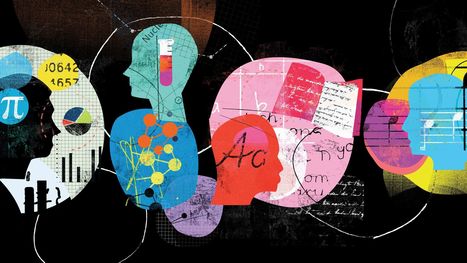

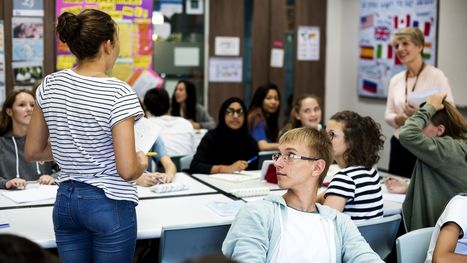

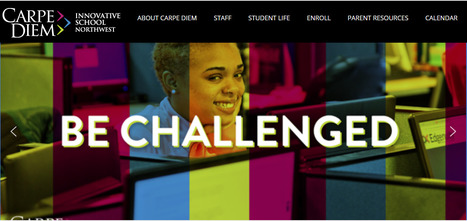


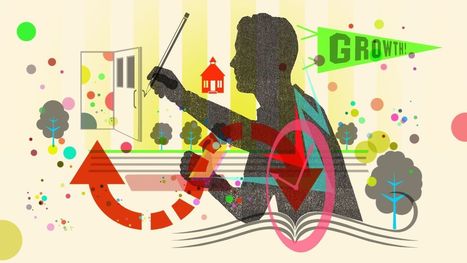



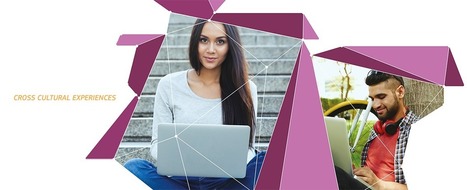





Éducation : Python deviendra le langage officiel de programmation en France
Dans le cadre de la réforme du Bac et du lycée
Le 19 novembre 2018, par Michael Guilloux, Chroniqueur Actualités
À la mi-février, le ministre français de l'Éducation a dévoilé la tant débattue réforme du bac qui, comme on s'y attendait, a marqué la fin des séries au lycée, du moins pour la voie générale. Pour les partisans de cette réforme, il s'agit de repenser le lycée afin de mieux accompagner les élèves dans la conception de leur projet et dans l'acquisition des connaissances et des compétences nécessaires à leur poursuite d'études.
Mais cette réforme du baccalauréat et du lycée général et technologique nécessite l'élaboration de nouveaux contenus d'enseignement. Le Conseil supérieur des programmes (CSP) a donc été saisi par le ministre en février 2018 afin de concevoir les projets de programmes du futur lycée. Depuis la mi-octobre, le CSP rend publics ses projets pour les classes de seconde et de première générale et technologique. Pour certains enseignements, le projet de programme de terminale est également disponible.
Learn more / En savoir plus / Mehr erfahren:
https://www.scoop.it/t/21st-century-learning-and-teaching/?&tag=Programming...
https://www.scoop.it/t/21st-century-learning-and-teaching/?&tag=Python